Traumatic injuries to the lower limbs.
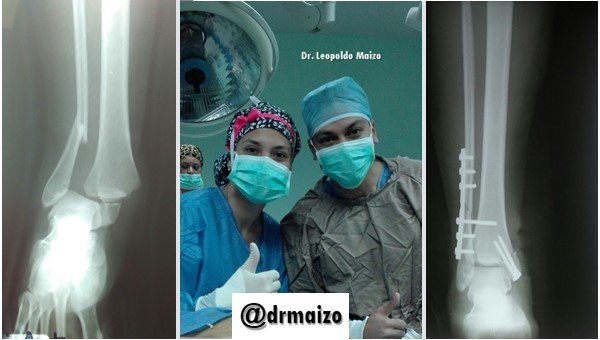
Lower limbs
The human locomotor system consists of the osteoarticular system (bones, joints and ligaments) and the muscular system (muscles and tendons). The lower extremities, in addition to supporting the weight of the body, are the main responsible for its displacement, which undoubtedly makes them preferential candidates to present all types of injuries and trauma. In this work, the most frequent ones are dealt with, as well as alternatives that can be offered from the pharmacy to avoid their appearance, favour their recovery and minimise their impact once they have occurred.

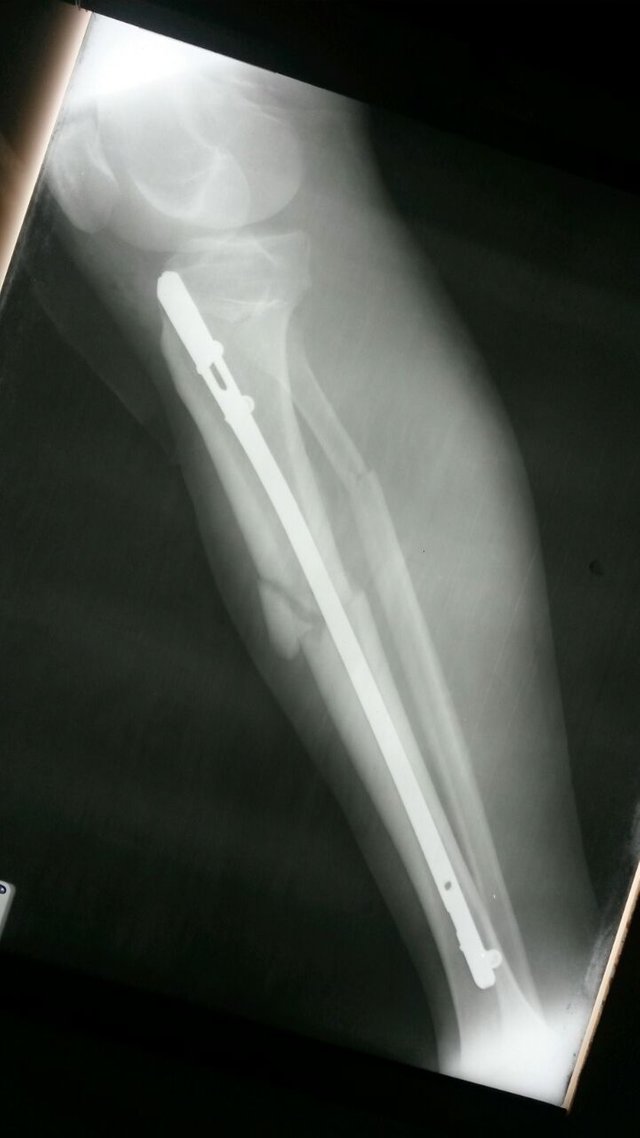
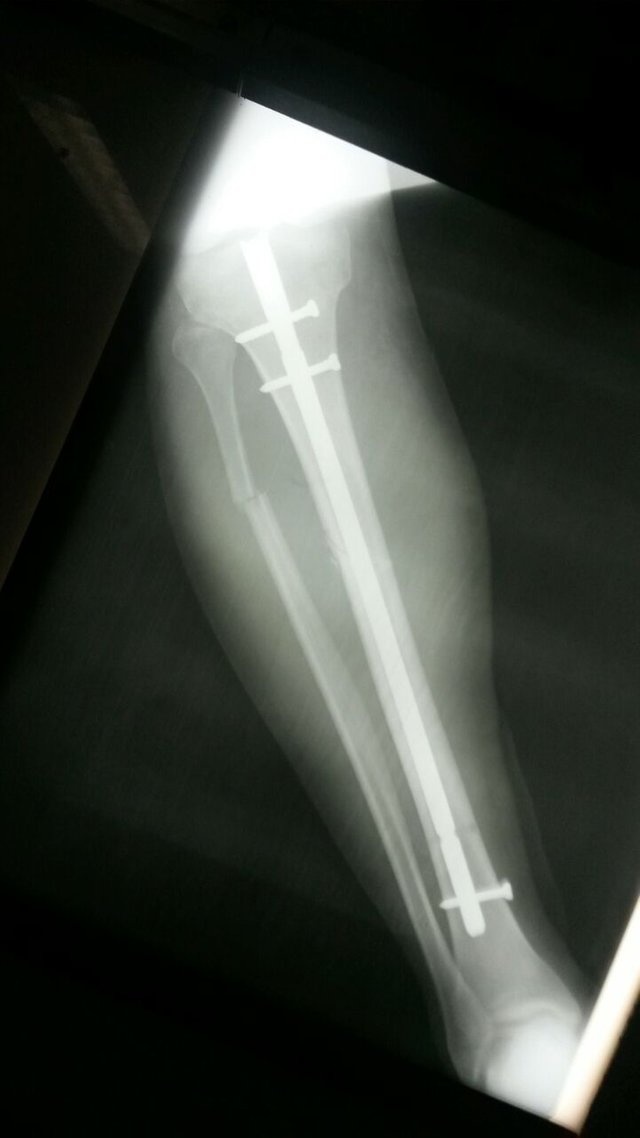
Movement and physical activity are inherent in humankind. From a very young age, children are taught to walk and, a little later, they are insisted on the importance of regular physical exercise. The benefits of movement and regular sport are diverse: it allows oxygenation of the body, releases energy, improves blood circulation, helps prevent obesity, lowers blood pressure, preserves the strength of connective tissue, slows the degeneration of the passage of time and helps combat depression, among other things. In addition, collective sports promote socialization and companionship.
But not everything is rosy when talking about sport and health: sometimes, physical activity, both recreational and competitive, inherently carries the risk of injuring the locomotor system and, in particular, the parties responsible for the movements. Obviously, some sports have a higher probability of injury than others, with contact sports (football, basketball, rugby) and speed sports (skiing, squash, cycling, paragliding) having a higher probability of causing them.
Unfortunately, however, the risk of traumatic injuries to the lower extremities is not limited exclusively to sporting activities, but can also be caused by causes other than physical exercise. As indicated above, feet and legs are the architects of body movements: almost everyone, at all ages and throughout the day, is constantly on the move. Normally these movements take place on floors of different natures and in an environment often marked by obstacles and irregularities (sidewalks, stairs, stones, protrusions, undercuts). Sometimes rushes cause them to be done in an accelerated way and in most cases displacement is a kind of "reflex action" that we do in a secondary way to other activities (talking, window shopping, reading).
The aesthetic canons and the impositions of fashion are, in many occasions, an authentic multiplying factor for the risk of presenting lesions in the lower extremities. Excessive platforms, impossible soles, heels of all kinds, oppressive shoes or insufficient foot restraints are some of the "aids" that we impose on our lower extremities so that any walk or daily activity has a high probability of ending up in the consultation of a traumatologist.

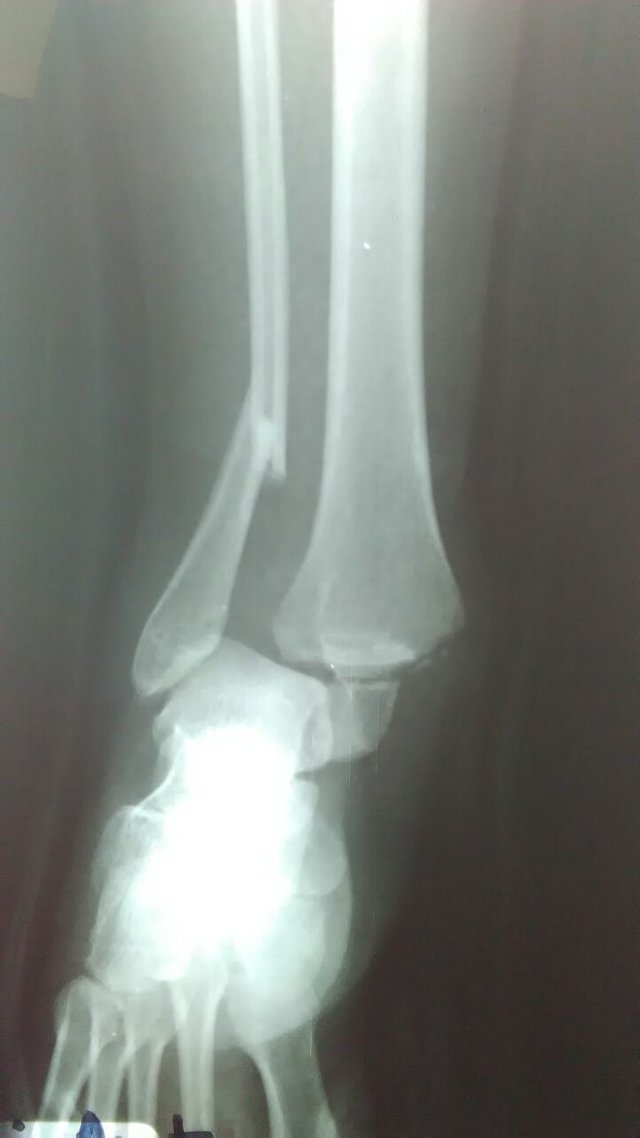
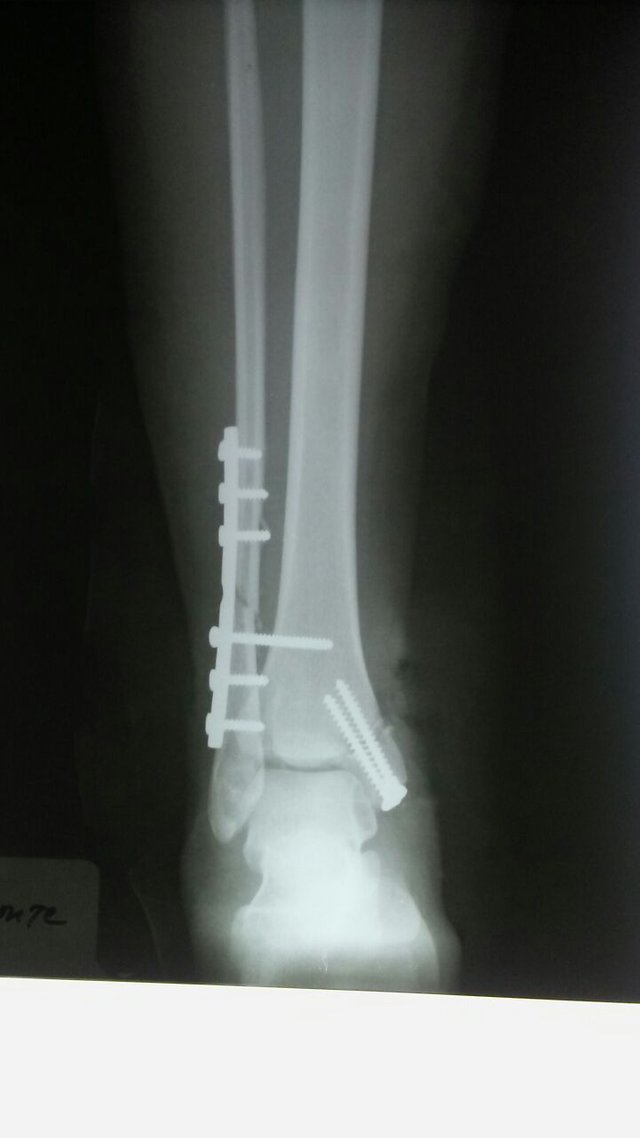
Trauma
In a general way, we speak of traumatism referring to any aggression that the organism presents as a consequence of the action of physical or mechanical agents (accidental falls, overloads).
Wound
It is the loss of continuity of the skin secondary to trauma. As a consequence, there is a risk of infection and the possibility of injury to adjacent organs or tissues such as muscles, nerves or blood vessels. The severity of wounds is evaluated according to depth, extent, location, evidence of dirt, presence of foreign bodies or signs of infection. The treatment and sanitary approach to minor wounds are included in all first aid manuals and are well known to pharmaceutical professionals, so the authors have not considered it necessary to make further considerations in this regard.
Unfortunately, the risk of presenting traumatic injuries to the lower extremities is not limited exclusively to sporting activities, but these may also occur for reasons other than physical exercise.
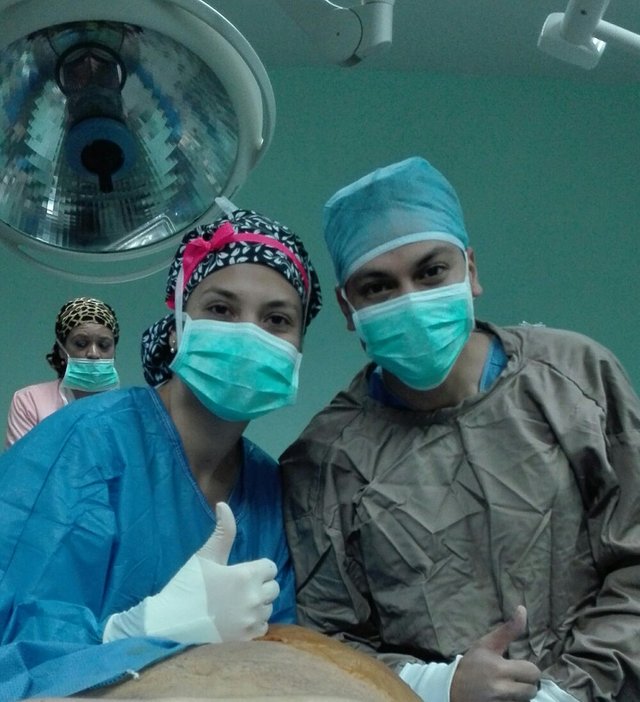
Bone trauma
Fractures are traumatic injuries defined as the loss of continuity in the bone. The most frequent symptomatology that accompanies this type of lesion is pain (which becomes very intense when the affected limb is moved), deformity, blurring, shortening (this will depend a lot on the type of break, the quantity and displacement of the fragments), inflammation, the appearance of haematoma and marked functional impotence. Any decision to intervene in an injury of this type must take into account the possibility that there has been or may be an injury to adjacent soft tissue (blood vessels, nerve fibers), bleeding and hypovolemic shock, infection (in open fractures). The definitive treatment of this type of lesion involves transferring the affected person to a health centre and must be carried out by a doctor.
In the event that it is necessary to help an injured person in whom this type of injury is suspected, some considerations must be taken into account:
Do not mobilise the injured person if it is not strictly necessary.
Remove any compressive elements (footwear, jewellery).
Explore distal mobility, sensibility and pulse.
Immobilize the focus of the fracture (without attempting to reduce it), including the contiguous joints, with rigid splints and avoiding movements of the affected area or moving it if necessary in block and under traction.
In the case of an open fracture, the wound should be covered with sterile dressings before immobilisation.

If you need recommendations or help in orthopedic surgery and traumatology do not hesitate to contact me.
Dr. Leopoldo Maizo - Orthopedic Surgeon

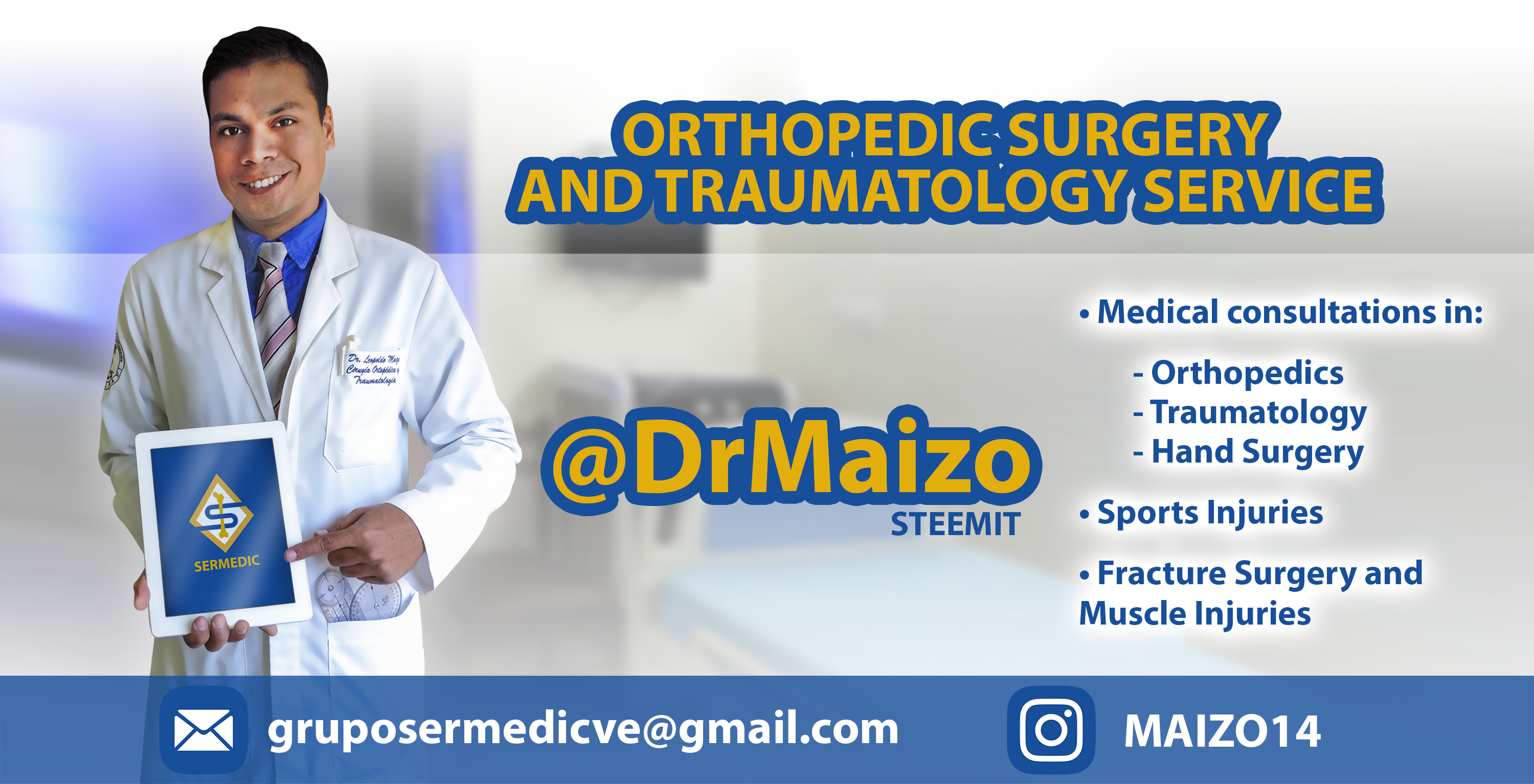
Firma diseñada por @themonkeyzuelans, contáctalos vía Discord "themonkeyzuelans#9087"
Great projects from the Steemit community:
- My Fundition campaign: https://fundition.io/#!/@drmaizo/6f88ggj8h



.png)
Merry Christmas, enjoy the vote!
Thank you @berniesanders. Merry Christmas to you too. :)
There must be a fine decision line wether or not to internally fixate the fracture site?
Of course, there are several protocols that tell orthopedic surgeons when to operate or not on a patient, even when to place a particular type of treatment. These are criteria that are modified each year according to the experience of each surgeon. Thank you for your comment and Merry Christmas!
Congratulations! Your post has been selected as a daily Steemit truffle! It is listed on rank 1 of all contributions awarded today. You can find the TOP DAILY TRUFFLE PICKS HERE.
I upvoted your contribution because to my mind your post is at least 7 SBD worth and should receive 226 votes. It's now up to the lovely Steemit community to make this come true.
I am
TrufflePig, an Artificial Intelligence Bot that helps minnows and content curators using Machine Learning. If you are curious how I select content, you can find an explanation here!Have a nice day and sincerely yours,

TrufflePigThank you very much!! :D
This project is being supported by @Fundition
Fundition is a next-generation, decentralized, peer-to-peer crowdfunding and collaboration platform, built on the Steem blockchain.
#upfundition and #fundition tags on Steem represent the projects that are started on https://fundition.io.
Are You Prepared to Make the World a Better Place too?
Read the full details of Fundition Fund program
Learn more about Fundition by reading our purplepaper
Join a community with heart based giving at its core
Thank you @fundition!! :D
Congratulations @drmaizo! You have completed the following achievement on the Steem blockchain and have been rewarded with new badge(s) :
Click here to view your Board
If you no longer want to receive notifications, reply to this comment with the word
STOPDo not miss the last post from @steemitboard: